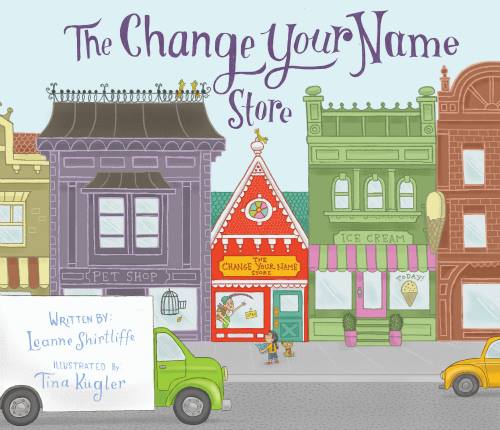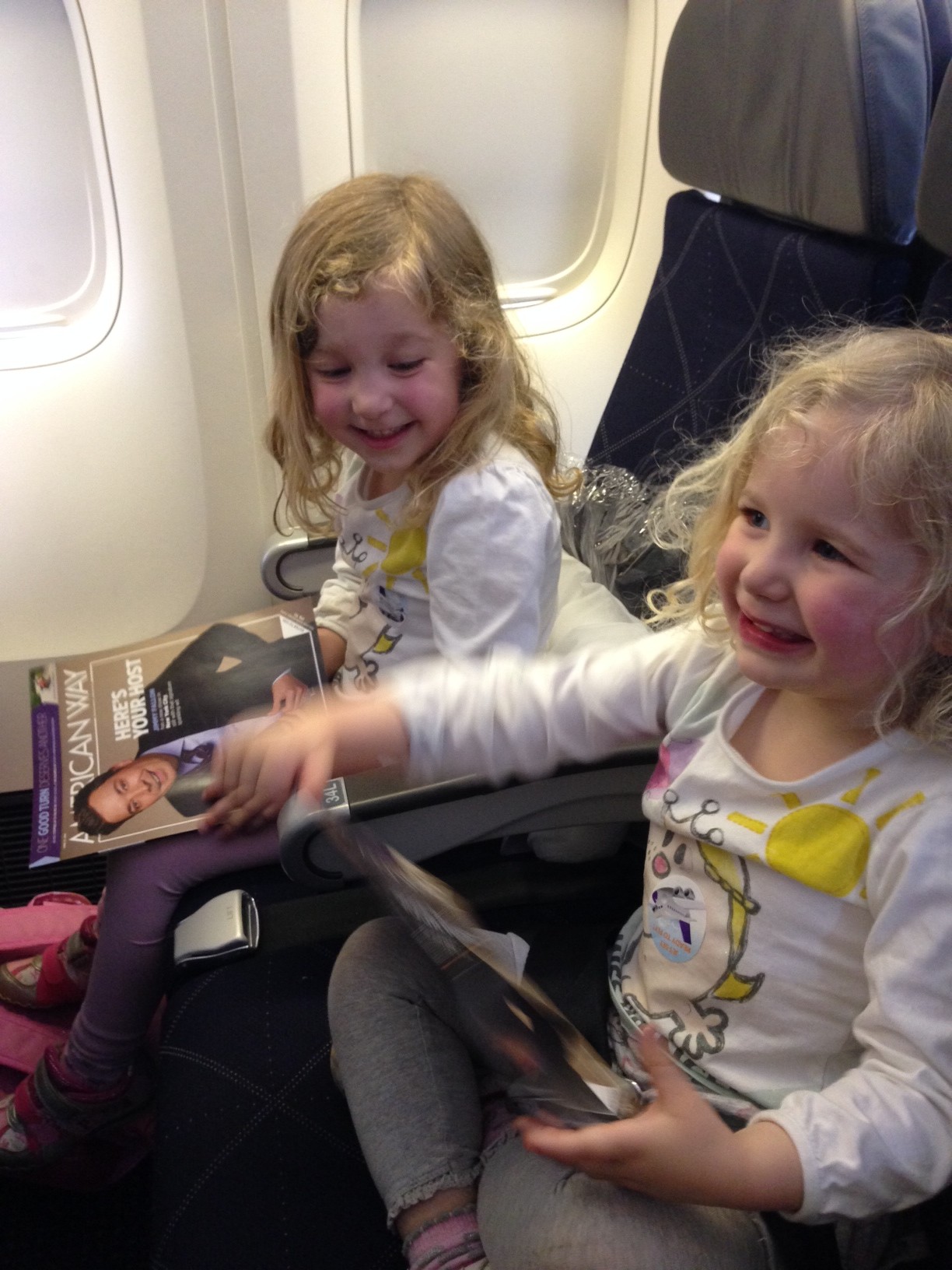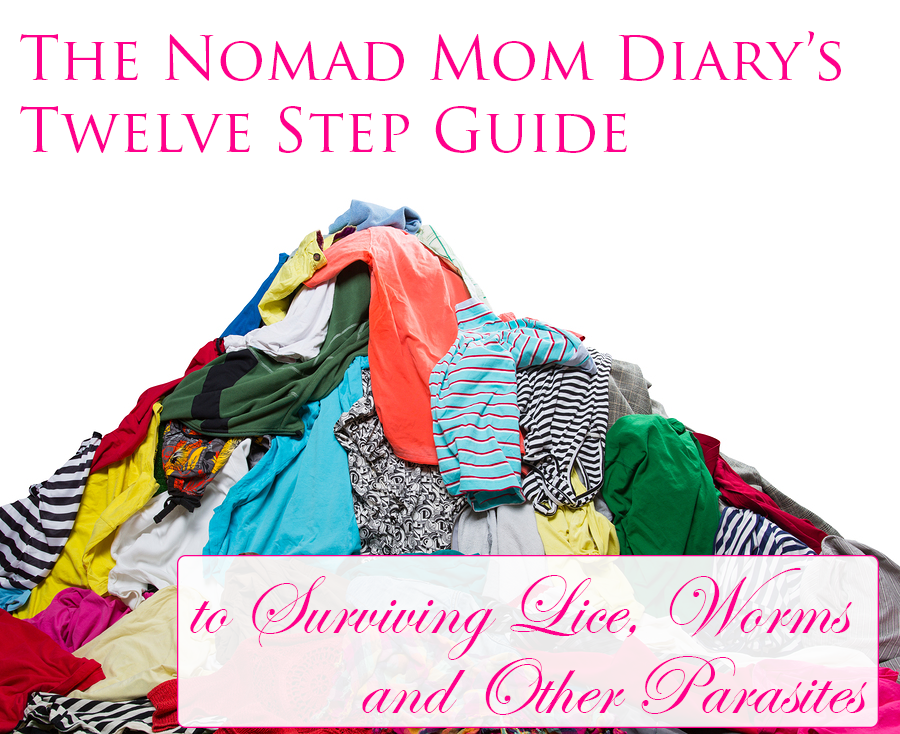My husband and I always wondered how long it would take our girls to figure out that our family is a bit different. As a half-American, half-Italian family living in the UK, we may look like everyone else, but we certainly don’t sound or feel like everyone else. And by “we”, I mean my husband and I. Our two daughters, ages 3 and 5, are much less obviously outsiders. When they line up at school with their classmates, two little blond heads in a sea of light-haired and blue-eyed children, and chatter away with their quickly acquired British accents, they seem just like everyone else. But we aren’t and we were curious to see how long it would take them to figure it out.
Recently our five year old came home from school and wanted to know, “Why does mommy talk funny?” I sat her down on the couch and explained, “Mommy comes from America.”
“What’s America?” she asked. And so began our conversation about countries and languages, cultural similarities and differences and where she and I fit into the world. We pulled out a map and I showed her where all of the countries are. As we sat there, me trying desperately to explain and confusion written large across her face, I slowly realized that I was doing more harm than good. I needed some age-appropriate help.
One of my friends recommended the book The Change Your Name Store written by Canadian author Leanne Shirtliffe and illustrated by Tina Kugler.

The book is centered around Wilma Lee Wu, a spunky little girl who loves everything about her life except her name. She heads over to the Change Your Name Store to pick out a new one, but there is a catch. If she selects a new name, she has to accept it completely, including all of the cultural identity that goes along with it. With the help of the store owner, Wilma Lee tries on name after name, magically transporting herself to the different countries of origin and learning along the way about the world and her place in it.
The rhyming lines and brightly-colored illustrations captivated my daughter. More importantly, reading about Wilma trying on names gave me the perfect opportunity to talk about the different ways we have to call ourselves. Daddy becomes papa, mummy becomes mama, granny and grandpa are nonna and nonno. The variations on our names are a reflection of our unique identities and cultural heritages.
My daughter’s eyes lit up as the concepts sunk in, “I have three names too, mommy!” – her full name, only used at school, her cutesy American nickname from home and the lyrical pronunciation of her name in Italian. She leapt off the sofa and ran off to share this piece of news with her Papa.
My daughter still talks about how her mother and father don’t speak like everyone else, but now she does with a smile and a sense of pride. When I tried to speak with a British accent the other day, she stopped me. “No, mommy, you don’t speak British. You speak American because you come from America.”
“And what about you, little one? What language do you speak?” I asked her.
“I speak British sometimes…and American…and also Italiano. I speak all three because I am all three.” She’s right. She has three beautiful names and three unique identities. Three ways to see the world and three paths in front of her. Thanks to the Change Your Name Store, she can now see them all, and as she grows older, she can decide whether she wants to pick one of them, or weave a fourth path all of her own. I can’t wait to see which way she decides to go.
 Lies We All Tell Our Kids
Lies We All Tell Our Kids Miley Cyrus at the VMA’s – no surprise there
Miley Cyrus at the VMA’s – no surprise there To The Man or Woman in Row 23
To The Man or Woman in Row 23 The Twelve Step Guide to Surviving Lice, Worms and Other Parasites
The Twelve Step Guide to Surviving Lice, Worms and Other Parasites Bangers & Smash
Bangers & Smash
Anne @ FoodRetro.com says
As a fellow American transplant, gotta ask: do you get from your family that you talk all British now, and from your British friends, they still rib you for talking like an American? 🙂 Cause I do. The Canadians think I sound American, the Americans think I sound Canadian, and now I find my accent audibly wanders depending on who I am in the room with… to the point I can hear it too.
It creeps me out.
Lynn (The Nomad Mom) says
Omg, yes! I am so glad that I’m not alone in this. I suggest we meet up somewhere in the middle/centre this fall/autumn and commiserate together.
Jessica @ Absurd, She Wrote says
Oh, this was lovely! I remember growing up thinking my father spoke differently (he was from Philadelphia). Water was “worter,” “orange” was “AR-enge,” and “horrible” was “HARR-i-bul.” But at the same time, I felt kind of special, having a dad who didn’t talk like the other parents I knew!